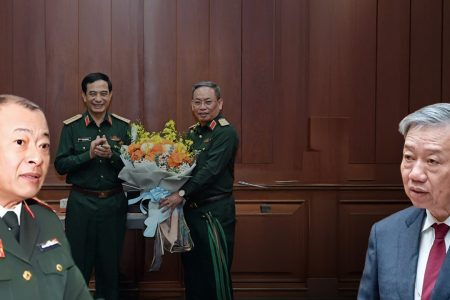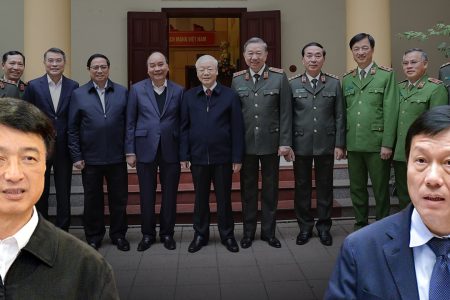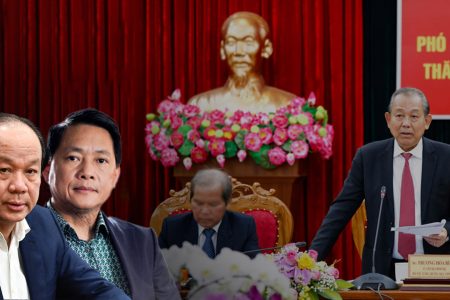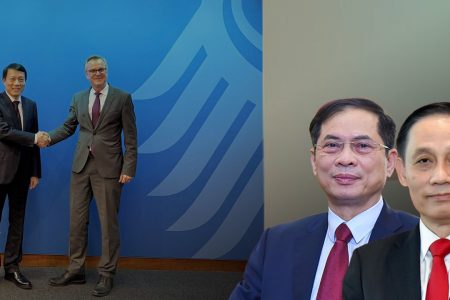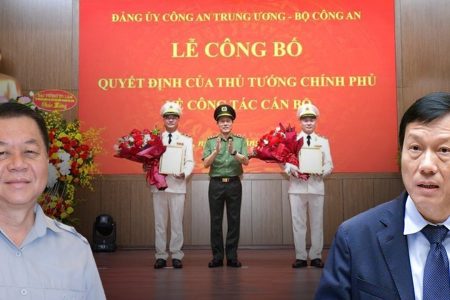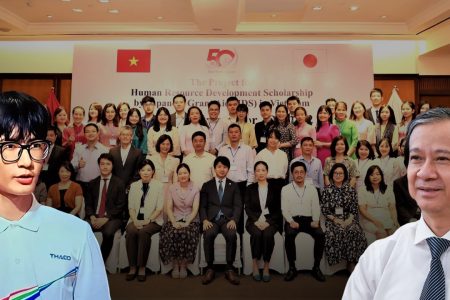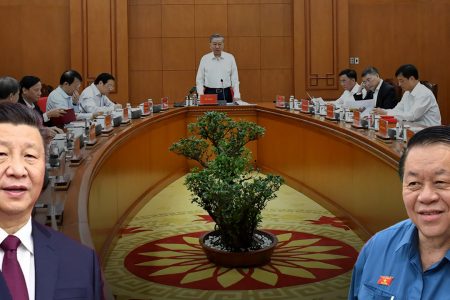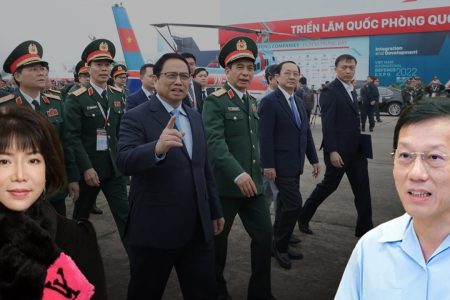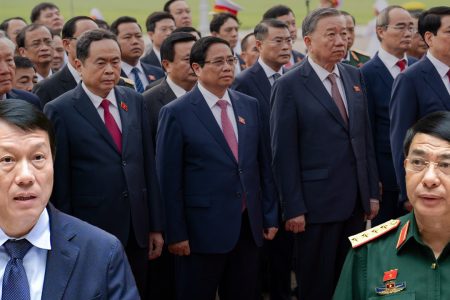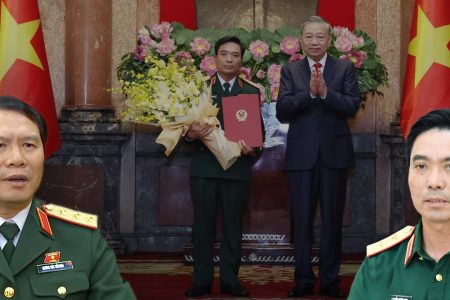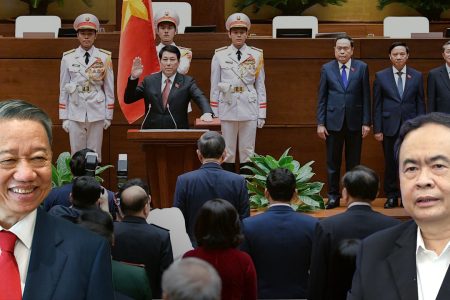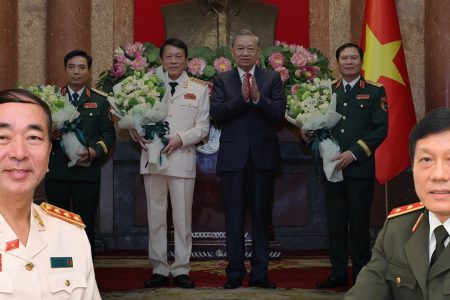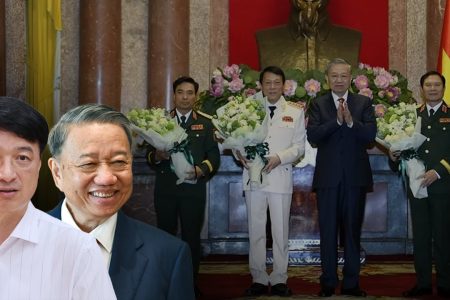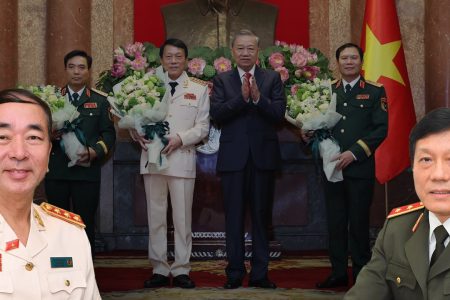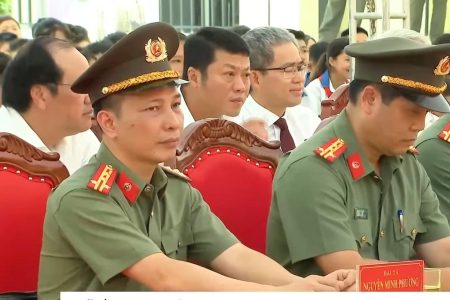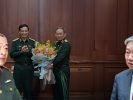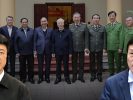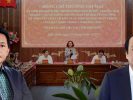
Creating an institutional environment for the Government to ‘find’ its identity is a core policy in transformational reform.
The Communist Party is really not “satisfied” with the situation of recession “from the Government” and, in its efforts to prevent “self-evolution,” strengthen leadership through resolutions, screen cadres and deter “unprecedented” punishment. However, market transformation is demanding an institutional environment for the Government to “find” the identity it needs to be “government of the people, by the people, and for the people.”
Political recession
The main political deterioration in the transition to the market is the tendency to decouple the government’s relative power from the “comprehensive and absolute leadership” of the Communist Party. The typical form of manifestation is the “deterioration of ideology, morality and lifestyle” of leading cadres and party members, originating and first of all, from Government officials – technocrats, who “have power and close to financial resources” so it is easy to be tempted.
However, the Party decides to choose the Government, but when operating with the market transformation, the recession took place and became more and more serious. Although it is a fact, the Party finds it difficult to accept. Therefore, the Party is determined to resist by all means.
Political recession is an unpredictable process of change over the post-Doi Moi government terms. In the early period, the two terms of the late Prime Ministers Vo Van Kiet and Phan Van Khai were relatively “peaceful” under the comprehensive and absolute leadership of the Communist Party. In the context that the country is still poor and backward, the government’s economic management is mainly focused on recovering from the aftermath of the war, removing the stagnation of the subsidy period, and unleashing the potential of natural resources and labor for development. With the inertia of energy and the “revolutionary” will, the leaders have made their mark with groundbreaking works such as the North-South 500kv power line project and market laws such as the Enterprise Law, Investment Law, Labor Code… The rebound from the repression by the “subsidy” mechanism has mobilized human and material resources to create high growth and thanks to that, the country and the people have earned more than they spend.
The leadership recognized the growth impetus from the market, but had no experience with it, and moreover, was held back by the ideology of socialism, so a political recession took place. The consequences of the administration by the Government led by former Prime Minister Nguyen Tan Dung for 10 years (2006 -2016) are serious evidence for this statement. The mistake of the hasty growth policy based on state-owned economic groups, which are considered the “steel fists” of the economy, has caused the “lost decade,” not only reducing growth economic but also institutional instability. Although admitting to policy mistakes, the Party believes that the “degradation of ideology, morality and lifestyle” of leading cadres and party members comes from the administration of the Government. People paid the price, but there was no discipline for mistakes!
Hard effort
Since the 12th National Congress in early 2016, the Party’s “factions” have gained the upper hand in power and, at the 13th National Congress in early 2021, setting the task of building a “strong Party, strong state,” the Party has worked hard to control Government by screening cadres and anti-recession on a large scale. During the term (2016-2021), as a “transitional” period, Mr. Nguyen Xuan Phuc was selected as prime minister by compromise on the principle of collective leadership. He practiced “Constructive Government” with a priority to use the existing apparatus of the political system to improve the business environment, promote entrepreneurship, and administrative reform to promote growth without causing disturbance or “side” effects for regime stability. Pham Minh Chinh, incumbent Prime Minister (2021-2026) and former deputy minister of public security used to be the Secretary of Quang Ninh Province and once “chaired” the project of the Special Economic Zone according to China’s experience, Head of the Organization Department of the Central Committee (TW). Believed to be a member of the Party and not directly run the economy, he is presented as a “commander” of events and “hot spots” amid the violent outbreak of the pandemic in Ho Chi Minh City, promoting economic recovery and anti-corruption without restrictions.
The anti-recession campaign has become increasingly fierce and widespread, with tens of thousands of party leaders and organizations being sanctioned. The General Secretary of the Party, and Head of the Central Anti-Corruption Commission in recent times has emphasized more and pledged his determination to fight corruption and recession “to the end.” However, the “burning furnace” campaign launched by him more than 10 years ago has “not achieved the desired results” and “negative phenomena still occur in a subtle and complex way.” Recently, in the Viet A case, two members of the Central Committee, the Minister of Health and the chairman of Hanoi, and a series of provincial officials have just been arrested and, the above “seats” are still open with the doubt “is there anyone who is worthy?”
In addition, the leadership through documents and resolutions of the Party has been promoted and “refreshed.” The moves that the Party has reviewed from the resolutions of the previous term to serve as a “framework” for binding policy making related to economic management in this term is a notable feature. For example, Resolution No. 19-NQ/TW of the Central Committee of the Party, term XI, was carefully reviewed, on that basis, Resolution No. 18-NQ/TW dated June 16, 2022, was issued for the preparation process of amending the Land Law 2013 or Resolutions on the development of key economic zones create a corridor for the Government’s management…
Government identity
All of the above “transformations” take time to test in practice the effectiveness of the Party’s control over the government as well as the market’s response because they cannot generate confidence in a convincing way when not being “guided” by scientific arguments. The above-mentioned efforts have reflected the determination to maintain the totalitarian Communist Party regime instead of creating an institutional environment for the Government, which is not being trusted or controlled by the Party, to find its identity required in market transformation. It is “Government of the people, by the people and for the people.”
The socialist system following the Soviet model, in the name of which the Communist Party stands above the state and the law, has completely collapsed since the early 1990s. The member countries of the system have converted to the market in two ways, changing and maintaining the political regime. Unlike the socialist countries of Eastern Europe, where democracy was established and gradually perfected, Vietnam followed China’s example and chose the second way, maintaining the totalitarian Party regime. The latter model is a hybrid variant of the outdated Soviet model with a transition market, which, although successfully “harvested” in terms of sustained high growth, is now a “crony capitalist state” expanding and fostering profiteering relations – the source of the “deterioration of ideology, morality and lifestyle” of leaders and party members.
Creating an institutional environment for the Government to ‘find’ its identity needs to be a core policy in transformational reform. The “state of the people, by the people, and for the people,” a product of the modern, democratic state, needs to be returned in political reform in Vietnam instead of a “strong party, strong state.” The reality of the transition from a centralized to a market economy is requiring strong decentralization of local governments and substantial and broader empowerment of the people not only to control the alienation of power but also to perfect the government in the direction of democracy.
Thoibao.de (Translated)



